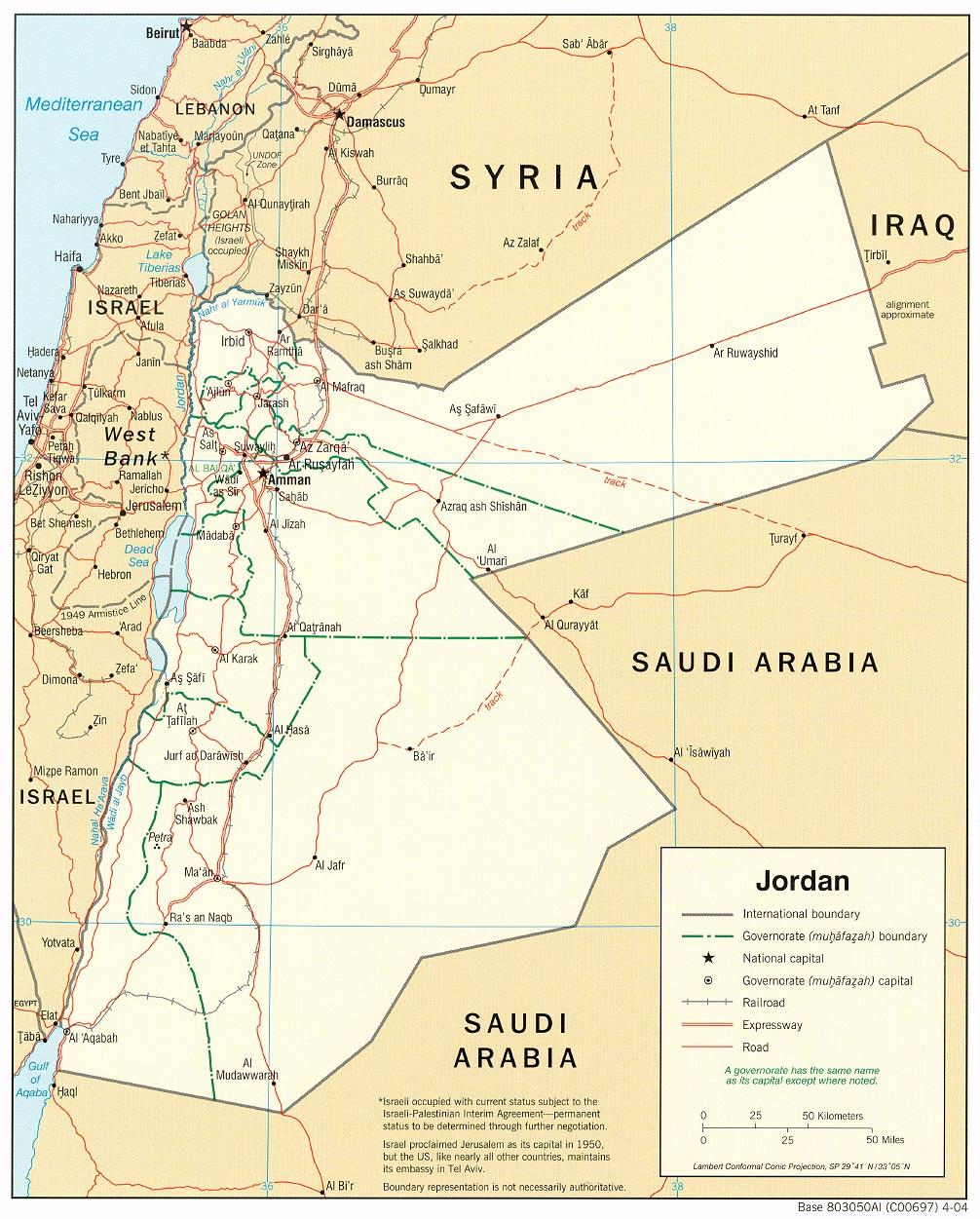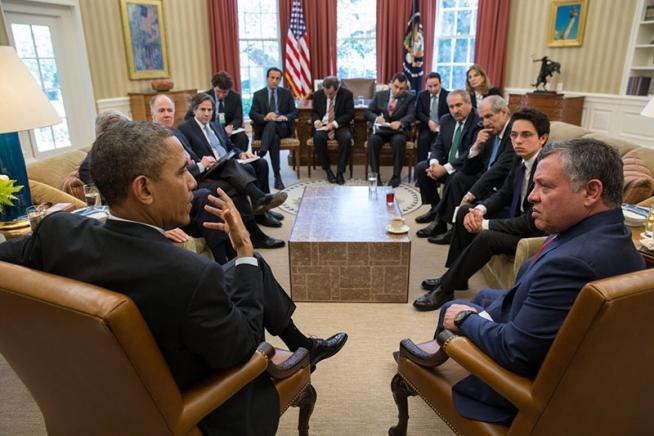Why Jordan is at the epicenter of nearly all Middle Eastern issues
President Barack Obama talks with King Abdullah II of Jordan during a bilateral meeting in the Oval Office, April 26, 2013.
The Kingdom of Jordan has long been at the center of America's strategy in the Middle East. And this partnership was reaffirmed recently when President Barack Obama promised to increase aid to Jordan from $660 million to more than $1 billion a year.
The United States will also be providing critical loan guarantees to the country.
“This will have a tremendous impact on Jordanians at all levels," King Abdullah said during the White House meeting earlier this month.

The aid increase comes at a critical time for Jordan as the country faces an unprecedented humanitarian crisis, with an estimated 620,000 Syrian refugees pouring into camps along the Jordanian border over the past three years. The country received some more welcome news this week when, at a conference in Geneva, the United Nation's Refugee Agency announced that more countries will begin accepting Syrian refugees, and others will expand their existing refugee programs. However this is not predicted to have an immediate impact on the crisis in Jordan, where the immigrant population is nearing half the total population of the country.
Compounding the refugee crisis is Jordan's proximity to Iraq's Anbar province and other regions being targeted by the Islamic State. And yet despite this, many observers, like Faysal Itani from the Atlantic Council, don't believe the Islamic State poses an imminent threat to Jordan. He notes that Jordan's largely homogenous population lacks the Sunni versus Shia tension that has gripped other parts of the Middle East. Still, Jordan's nearness to that threat, the nuclear ambitions of Iran, and the ongoing dispute between Israelis and Palestinians, make it the epicenter for nearly every major issue occurring in the Middle East today.
Temple University political science professor Sean Yom says this is the reason Jordan and the United States have had a symbiotic relationship for decades. America receives a reliable partner in a volatile part of the world, and Jordan receives humanitarian aid and military assistance. He notes Jordan's alliances with the West have made it arguably the most stable country in the Middle East.
But it remains to be seen how much weight the country can bear. It lacks the vast wealth of its oil-rich neighbors, and faces some emerging challenges from within such as the Muslim Brotherhood. The question lingers, will America and the West remain firm in their commitment to Jordan should things take a turn for the worse?
These and other issues will be debated today at noon ET during a live international Town Hall event, embedded below, connecting audiences at WHYY in Philadelphia with those at the Jordan Media Institute in Amman. The discussion will be led by hosts Jacki Lyden and Yusuf Mansur. You can make your voice heard in the discussion by tweeting with the hashtag #AAMTownHall.
